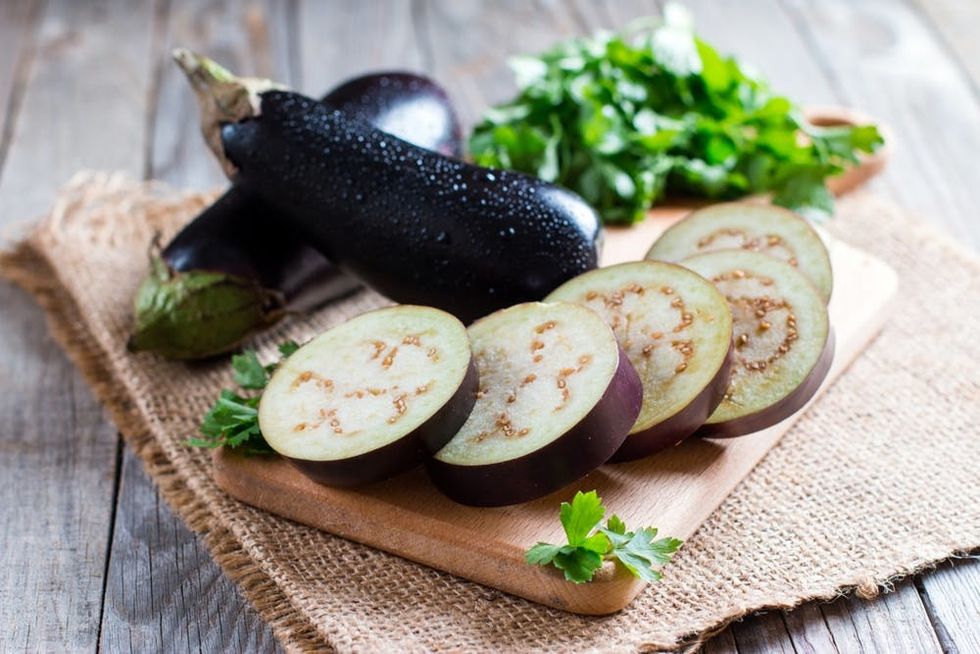To eat or not to eat: We answer the question.
How Nightshade Vegetables Can Impact Your Health

If there’s one piece of nutrition advice that seems pretty standard, it’s to eat our vegetables. Veggies are packed with vitamins, minerals, fiber, and antioxidants, and everyone from the school lunch lady to the dude on the Nutribullet infomercials exhorts us to get more of them in our diet for wellness. So it might sound a bit counterintuitive that a growing contingent of folks actively avoids one category of vegetables — nightshades — for health reasons. What’s the deal with nightshades, and is there truth to the claims that they can cause or aggravate health problems?
Wait, What Are Nightshades Again?

You may associate the term “nightshade” with a variety of highly deadly berries known as atropa belladonna, or “deadly nightshade” — a handful of which can knock dead a full-grown adult. (The “nightlock” berries that killed off a certain villain in The Hunger Games movies were based on these plants.) The toxic juicy gems belong to a wide family of plants called Solanaceae, which includes over 27,000 varieties. Surprisingly, in the same family — but as very distant cousins — you’ll also find several plants common to the American diet, including potatoes, tomatoes, eggplant, and peppers (most of which are technically fruits). These edible nightshades are the ones causing concern for some consumers.
Why Are People Avoiding Them?
It’s pretty obvious that everyone should avoid eating the so-called “devil’s berries,” but what could be wrong with eating their veggie relatives? If you haven’t heard the bad press around nightshades, the idea goes that tomatoes, potatoes, eggplants, and peppers can cause inflammation, “leaky gut,” acne, insomnia, and other unpleasant health issues. Numerous bloggers and alternative health practitioners urge caution around these vegetables — or call for outright elimination of them — due to their amounts of chemical compounds like lectins, calcitriol, alkaloids, and solanine. Theoretically, these substances can trigger an immune response because of their inflammatory and/or toxic properties.
Setting the Record Straight

Many public health authorities are inclined to disagree with all these negative claims, as mounting evidence reveals that nightshades probably aren’t to blame for such detrimental health effects. The Arthritis Foundation, for example, states that, while the chemical solanine in nightshades often gets blamed for arthritis pain, “no research backs this claim.” And so far the effects of nightshades on leaky gut (a theoretical harmful increase in intestinal permeability) have primarily been studied in animals, not humans, and may be linked specifically to preexisting conditions such as inflammatory bowel disease. “Eliminating nightshades can turn into an extremely restrictive diet, and there is no real scientific evidence to support that nightshades are pro-inflammatory,” says registered and certified dietitian nutritionist Abbie Gellman, founder of Culinary Nutrition Cuisine and member of Jenny Craig’s Scientific Advisory Board. “There is also a theory that over-consumption of calcitriol from nightshade foods can lead to calcium deposits. But no formal research has ever confirmed the claim, and the vegetables contain essential nutrients.”
As Gellman points out, nightshade vegetables actually have a lot to offer nutritionally. Here’s a look at some confirmed benefits of these four key players in the nightshade debate.
1. Tomatoes: For nightshade skeptics, tomatoes top the list of pro-inflammatory offenders. But they have actually been shown to have anti-inflammatory properties. Due to high amounts of a powerful antioxidant called lycopene, tomatoes also appear to reduce the risk of conditions such as cancer, osteoporosis, and heart disease.
2. Potatoes: Sure, as French fries or under a pile of butter and sour cream, potatoes don’t make a great dietary choice. But by themselves, potatoes boast a sizable dose of fiber and potassium, and one study in The Journal of Nutrition found that yellow and purple potatoes lowered blood markers of inflammatory damage in healthy cis men.
3. Eggplants: These unique purple veggies may not be to everyone’s taste, but there’s not much evidence that they trigger health problems. In fact, a 2015 study found that an extract from the stalk of this plant could quell inflammation. And anthocyanin — the flavonoid that gives eggplant its signature purple color — has been associated with reduced mortality from cardiovascular disease.
4. Peppers: Worried about harmful chemical compounds but don’t want to let the spice out of your life? Maybe you don’t have to. Research indicates that capsaicin — the compound that gives hot chili peppers their piquancy — could be useful for reducing pain from osteoarthritis, rheumatoid arthritis, and fibromyalgia. Bell peppers also offer great nutritional value, with plenty of vitamins and minerals, like vitamins A & C and folate.
It’s important to note that every body is different, and some people do have food sensitivities or allergies that make certain vegetables problematic — so if a food diary or allergy test reveals that nightshades give you physical symptoms, it’s, of course, best not to eat them. But, for most of us, these veggies are healthy options we can feel good about including in our diet.
What’s your favorite way to incorporate veggies into your diet? Tweet us @BritandCo!
(Photos via Getty)













